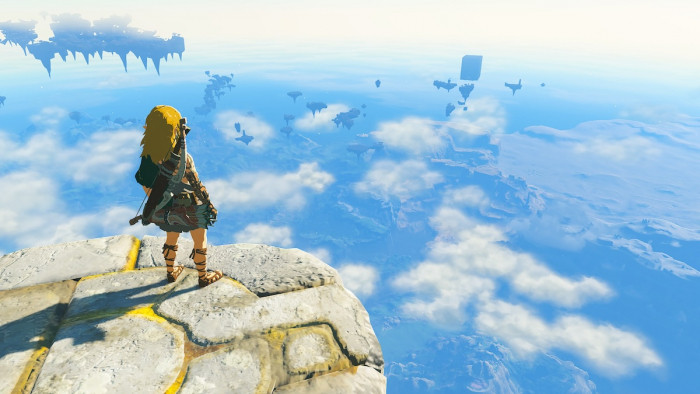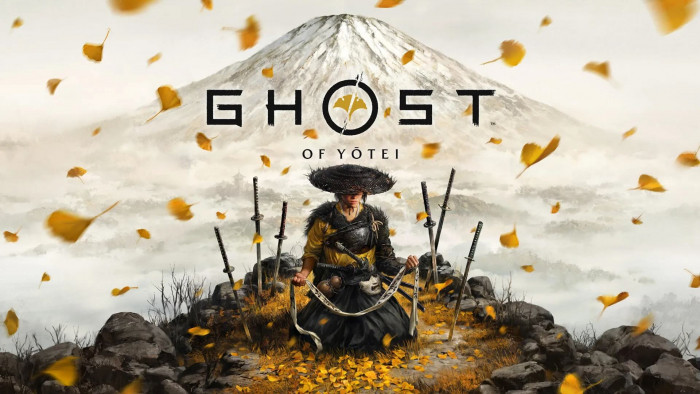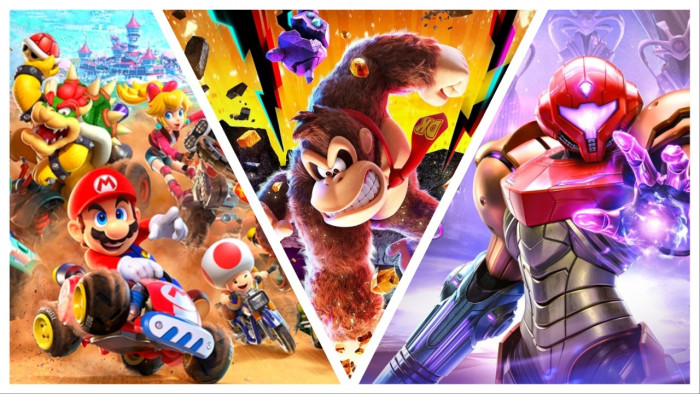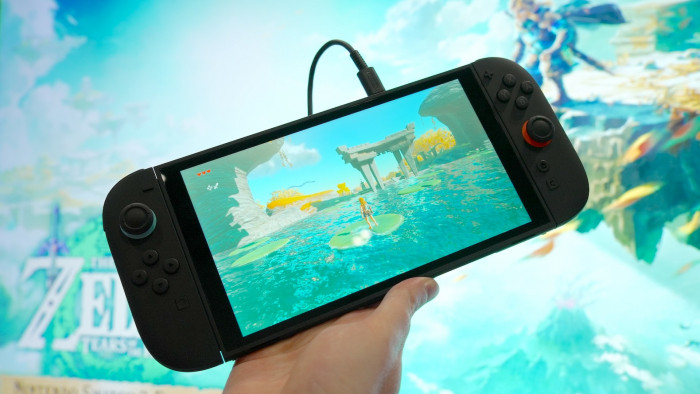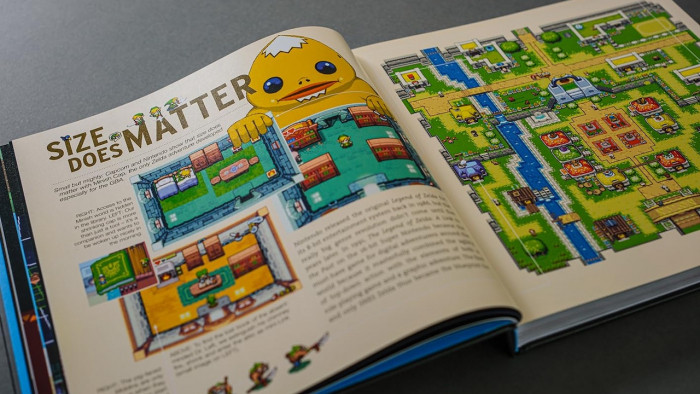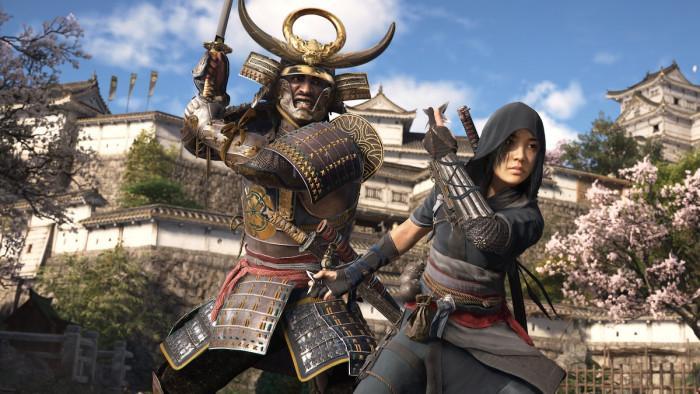The best game I ever played: Tony Hawk's Pro Skater
Tristan Cross remembers the video game that shaped his life


If I could go return to any time in my life and live in it forever – and I’m aware this seems quite a strange choice, but I am being completely honest here – I would go back to early adolescence, roughly between the ages of 11 and 14.
Because it’s the last time I remember a sustained feeling of contentment, or rather, not feeling some undermining, underlying dissatisfaction. This was when my pals and I would spend every evening booting a football around a park on a hill until it got dark, at which point we would then head to play Tony Hawk’s Pro Skater until such a time we’d invariably wake our families up rattling keys and creaking doors trying to slink back to our respective homes.
My first encounter with THPS was a stolen moment round a friend’s house. We were in his living room and he was distracted, eyes fixed on the front door, anxiously waiting for his elder brother to go out. As soon as he was sure the latch had clicked shut, he fixed wild, conspiratorial eyes on me and whispered an urgent “come on!” We tore upstairs, slipped into said brother’s room, nervously booted up his PlayStation and proceed to have our tiny minds blown. It wasn’t just a fantastic game, it was cool. Not cool in the way that LEGO and explosions are to 8-year-old boys, like, actually cool. Cool in a way video games had no right to be.
It seems preposterous now that the youth culture of the early noughties - populated as it was by lame beanies, wide-tongued Etnies, cargo shorts, t-shirts over long sleeves, pop-punk, white dreadlocks and soul-patches - was ever cool. It’s a culture which, even allowing for the cyclical nature of fashion and constant reappraisals of eras, will surely never be in vogue again. Yet, for the briefest of blinks in the universe’s timeline, there was a point in history that it was, somehow, undeniably, cool. To my friends, at least. And through some alchemy - some magical combination of gameplay, design and soundtrack - the bottled and distilled essence of this ‘cool’ was Tony Hawk’s Pro Skater.
As consoles moved into the 3D era, developers started moving more towards realistic simulation, clumsily rendering sport in ugly graphics and clunky game engines, resulting in ultimately disappointing experience. You weren’t scoring a goal or racing a Formula One car, you were shunting a load of pixels around a boring world. THPS went completely the other direction, presenting an unashamedly unrealistic, farcical depiction of ‘skateboarding’.
Sure, you were controlling a ‘pro skater’ (the likes of Rodney Mullen, Kareem Campbell, Bob Burnquist, Elissa Steamer and Hawk himself), and you were on a skateboard, and pulling tricks that had some grounding in real-life, but you were also performing 40 of them in a row, while being propelled out of a cannon over a factory, variously on fire. It wasn’t ‘skateboarding’, it was far better.
Those of us who dabbled in trying to actually skate soon realised that the reality of landing a physically feasible trick was so unimpressive that it was utter madness to think it was worth an endless trade off of ripped jeans, grazed knees and broken bones. Being good at THPS was far more fun, far more rewarding and, crucially, far cooler than humiliatingly smashing your face open bailing a pathetic ollie, yet again.

The ridiculously intuitive control system was a huge part of its success. The baselines were easy enough to grasp (X to ollie, square to flip, circle to grab and triangle to grind) and this simplicity allowed for incredible complexity in gameplay. The sequences you pressed the buttons in, the weight you applied to jabbing the button with sweaty thumbs, the speed with which you attacked a ramp, the trajectory which you took off, the angle you tried to land, the balance you had on the rail, the exact timing needed to keep the sequence going; did you play conservatively and hope to land enough achievable tricks to rack up a decent score, or go all out and keep a heart-in-the-mouth combo going absurdly close to failure?
The game rewarded the ambitious; the thrilling satisfaction of landing a high score breaking sequence was something to savour, to boast about in classrooms the morning after, but it would also crush them in equal measure; forcing them to witness their skater’s skull crack on the tarmac and 100,000 points evaporate in an instant. It wasn’t button bashing, it was a finely honed art of provision, a combination learned muscle-memory and divine inspiration. The amount of childhoods which must have been turned upside down, shattered and re-arranged on learning how to properly revert into manual and therefore extend a run way beyond its obvious shelf life is beyond human measurement. (There’s not time to even get into the revelatory transition of Tony Hawk’s Underground, which allowed you to keep lines going getting off your board.)
It wasn’t just a well-designed game that was fun to fritter away our free time in front of; it had a distinct atmosphere, a tone, a feel. Where other games might be set in some fantastical netherworld or some aspirational version of reality, the levels in Tony Hawks Pro Skater were decidedly quotidian. High schools, shopping malls, parking lots, grungy warehouses, leafy suburban backyards and perma-overcast concrete streets. This weird rendering of Americana was endlessly appealing to us, a bunch of kids in a nowhere provincial town in South Wales, because it was an aspirational reality we could actually conceive of.
It took the stifling boredom of places where nothing happens and injected them with possibility. They allowed you to have a cathartic consequence-free rampage around the suffocating ordinary, pulling off the stunts of idle daydreams – jumping on cars, leaping over buildings, crashing through windows – laying waste to these oppressively spaces of oppressive tedium. Even beyond the mindless wanton destruction, it was still fun to skate around listlessly, transforming the lethargic lazy days of youth spent doing nothing because there was nothing to do into something altogether more relaxing, more serene.
Most other games could only offer a temporary, unsatisfying escapism. No matter how convincingly they could make you feel as if you were exploring dystopian landscape, WWII battlefields, mythical jungles, sprawling metropolises or outer space, as soon as you turned the console off, you were back in your dingy bedroom, in your dreary town. When you turned THPS off, you were still in that dingy bedroom, in that dreary town, but it changed your relationship to it. The reality outside your dingy bedroom now seemed an extension of the goofy one presented in the game, and it didn’t seem so bad.

The game understood rudderless teenage angst of its audience, and it did this by avoiding making any patronising attempt to actually ‘understand’ their hormonal disenfranchisement and alienation in any weighty way, but by offering silly, over-the-top revenge. Teenagers are self-aware enough to realise the impudent rage they feel towards teachers, parents and The Man is born out of immaturity, and to take it seriously is to force them to confront it as such, and therefore mortifying. They just want their stupidest whims to be indulged. Arbitrary figures of authority – jobsworth janitors, fusty teachers and plodding policeman – litter the levels, appearing as caricature and fodder for humiliation, all shaking fists and “get back here!” yelling, all daring you to knock them over, steal their hats and dump hot garbage over them.
THPS was one of the first games I’d played that eschewed the usual chiptune soundtracks that had always made video games seem an inherently childish medium to me, or just a few randomly selected du jour tracks, in favour of selections as carefully curated as a compilation or a film soundtrack. An inspired mix of pop-punk, actual punk, hardcore, hip-hop, metal, ska and a couple of esoteric choices (Johnny Cash, The Doors, Frank Sinatra), were hugely formative in shaping a generation of players’ music tastes.
The video game equivalent of a mix tape, it gave me and many others our first encounters with Bad Brains, Faith No More, KRS-One, the Violent Femmes, Public Enemy, the Misfits, Iggy Pop and Deltron 3030. More than being worthy selection choices, they actually imbued the levels with distinct moods, lending them an air of chaos or else blissful calm. I recall smashing through the roof of THSP2’s Hangar to Papa Roach’s Last Resort as fondly as idly roaming across (the underappreciated) Tony Hawk’s Underground 2’s dusky New Orleans floodlit streets to Gran Puba’s I Like It. In fact, if I die, and there is a heaven, mine will be reliving these two moments, forever.
Sadly, the series has been gradually rendered obsolete by advances in gaming and a generational changing of the guard. Where the cartoonish look of THPS had once been the limits consoles would allow, a new era of realism made the game look increasingly dated, in tandem with the youth culture depicted in the game inevitably falling from relevancy, which made it feel that way, too. Nevertheless, the series has staggered on, releasing incrementally worse spin-offs post-Tony Hawk’s Underground, up until this year’s frankly embarrassing Tony Hawk’s Pro Skater 5 reboot, which bombed critically and commercially, and justifiably so.
I have always felt slightly cheated by the weakness of my nostalgia. Where others same able to look back at times in their life and feel a great fondness with the ol’ rose tinted specs, my own memories show up in the mind’s eye in far colder hues. It’s not that I’ve lived a life so harrowing that it’s been completely devoid of happy moments, it’s just that I generally have a complete absence in yearning for a return to them. I can recall the negative feelings I associate with these periods far more strongly than the experience of ever having enjoyed them.
The inverse is true of that time I associate with playing the Tony Hawk’s series, which is strange, because the experience of being between 11-14 is almost uniformly rubbish. You are abruptly torn from the happy-go-lucky slumber of childhood, your innocence is dashed in front of you, your joints start growing completely out of sync from one another, your dumbass hormones suddenly decide they want you to give your heart to someone just in time for you to develop a crippling self esteem that decides you are fundamentally unlovable. It’s a frightening time of utter vulnerability and uncertainty, a brutal confrontation that you now have to grow up and the fact you know absolutely nothing about doing just that.
The Tony Hawk’s series shepherded me through the truly turbulent transition into puberty, because it had a special quality that transcended the sum of its parts: it was a genuinely social game. The multiplayer options weren’t just a competitive aside; they formed most of my lasting friendships.
They were a sanctuary from school, a reason to hang out, to alleviate the boredom of being too old for toys and too young to actually go anywhere. They were hours well spent huddled round little TV in cramped rooms, the background to our inane chatter, the perfect accompaniment to first forays into casual tokes on dirt weed and high percentage cider. THPS allowed you to be as invested in the gameplay as you wanted. You could enter into a furious trick attack contest or an intense game of ‘horse’, or you could aimlessly dick about, crashing into one another and deliberately trying to make your skater bail in the most painful way possible. It could engage you totally, or just enough that you didn’t notice you were wasting entire evenings, and if you did, you didn’t mind.
No matter how many cups I lead my team to on Football Manager, no matter how far sandbox titles allow me to explore, no matter how many Nazis I cap in the face, video games just aren’t as gratifying to me anymore. As soon as I turn the console off, I’m still returned to my bedroom, only now I have alarming adult concerns like tax returns and doctors appointments and insatiable loneliness and a grim sense of foreboding and massive unease and a thousand other things to worry about and why the fuck have I just wasted two hours playing a video game?
I was still riddled with worry when I was between 11 and 14 – worries about girls, about school, about friends, about not belonging, about why I was increasingly prone to feeling miserable, about growing up – but when we played Tony Hawk’s, they seemed to dissolve. What else mattered? We had each other’s company, the best game ever made and all the time in the world to play it.
I miss that time.
Latest
Related Reviews and Shortlists



